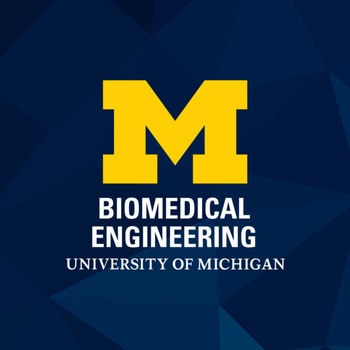ANN ARBOR— A team of U-M students is one of seven across the country to win $25,000 in the 2016 Ford College Community Challenge (Ford C3). Project MESA was recognized for their efforts to improve women’s health in rural Nicaragua through a portable gynecological exam table they designed for use by mobile health workers traveling to remote villages.
The team, which is comprised largely of BME undergraduates, is part of Michigan Health Engineered for All Lives (M-HEAL), the U-M student organization that brings biomedical engineering to underserved communities around the world.
Project MESA was an ideal match for Ford C3’s focus on student-driven projects that address pressing community needs in a sustainable way through the disciplines of engineering, business, and design.
The student-run project aims to reduce rural Nicaragua’s high mortality rate from cervical cancer by designing a portable, sterile, and professional table that helps women feel more comfortable consenting to a sensitive exam, while improving diagnostic accuracy through proper positioning. In the absence of the device, women are often examined by healthcare workers on beds or kitchen tables.
From its start, Project MESA had its sights set on sustainability. Catalyzed by a needs assessment among local healthcare providers in 2010, it was born of market demand. Through four iterations, the table has been refined to more fully meet the needs and preferences of providers and patients.
The team’s current focus is on sustainable production and distribution. Members traveled to Nicaragua in May to meet with healthcare partners for feedback on their most recent prototype and to begin discussions with local manufacturers about piloting in-country production of the table.
“THIS GRANT WILL ALLOW TEAM MEMBERS TO STAY LONGER IN COUNTRY TO TRY BUILDING THE TABLE WITH THE LOCAL MANUFACTURERS WE’VE IDENTIFIED…”– Erik Thomas
This testing and potential scale-up of local production is capital-intensive and will receive a significant boost from the Ford C3 funding. “This grant will allow team members to stay longer in country to try building the table with the local manufacturers we’ve identified,” says Project MESA co-lead and BME senior Erik Thomas. “We’ll be able to identify which parts of the table are easy to make there and which parts aren’t so easy. We plan to bring those insights back and design something that’s easier to produce, so that we can approach larger contract manufacturers to scale things up.”
The team hopes to leverage its partnerships with local groups to identify one with a stake in the table’s success to spearhead its distribution. They envision a portion of the proceeds supporting each level of the supply chain to foster sustainability.
Project MESA co-lead and proposal author Katherine Chen says the team is grateful for Ford C3’s support and credits their success with a highly motivated student team and a vigorous support network of faculty and volunteer advisors and Nicaraguan partners.
For more information:
